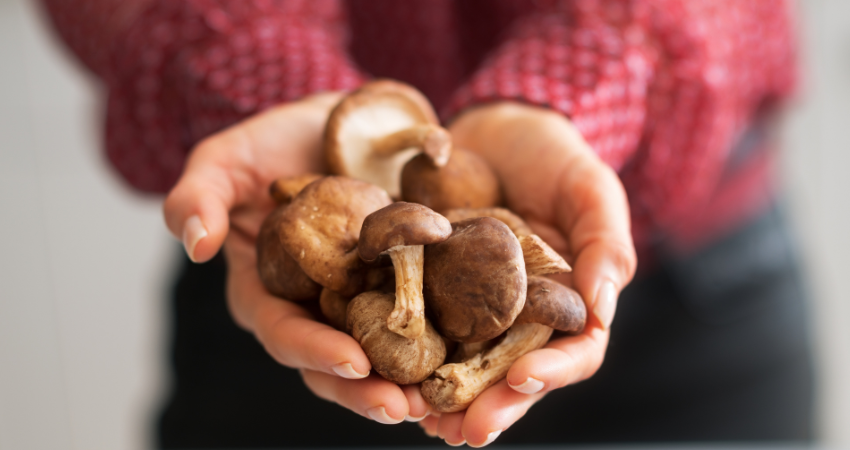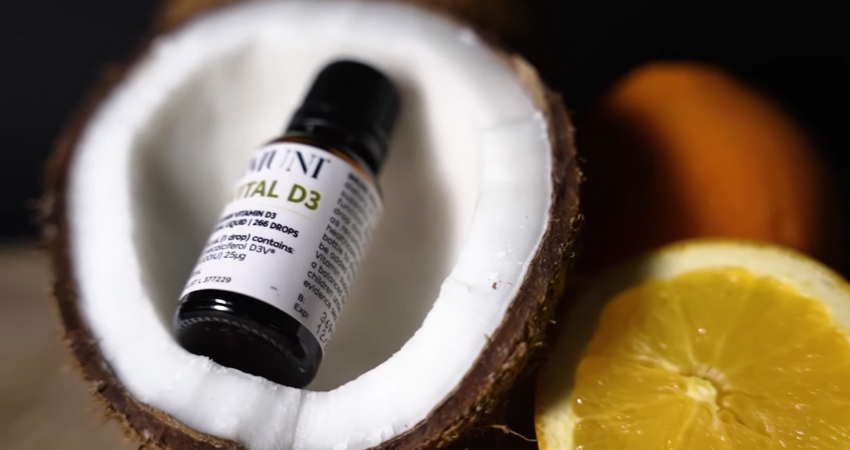As a vegan, you're already doing your part to protect the planet and animals. But do you know if you're getting enough vitamin D? This essential nutrient has been shown to help prevent bone disease, heart disease and cancer. It's found in some foods and supplements, but it can also be produced by our bodies when exposed to sunlight (with the help of UVB rays). There are also plenty of vegan options to help you with your vitamin D intake.
Vitamin D is one of the most important vitamins for maintaining health and preventing disease. It has been shown to reduce the risk of many chronic conditions, including heart disease and cancer. Although most people get enough vitamin D from sunlight exposure, it is estimated more than 1 in every 3 Australian adults has mild, moderate or severe vitamin D deficiency.
The best way to get enough vitamin D is by spending time outside in the sun. However, if you live in a northern climate or cannot get outside often due to work or other commitments, it can be difficult to make sure you're getting enough. If you suspect that you may not be getting enough vitamin D, talk with your doctor about vitamin D supplements!

You can get vitamin D from a variety of vegan food sources, such as fortified foods (soy milk, cereal, juice etc) and mushrooms. Whilst you can also obtain it from your diet by eating certain types of fish (like salmon or tuna), eggs or meat, vegans who don't eat these animal products may need to supplement their diets with vitamin D supplements.
You can also get vitamin D from:
But if you're a vegan like me, you might be wondering if getting enough vitamin D is even possible without supplements or fortified foods like milk, orange juice or cereal? If so - don't worry! Mushrooms have more vitamin D than any other plant based food on the market, making them the perfect addition to your diet. Also, getting outside and exposing your bare skin to the sun (without sunscreen) at least twice a week during spring/summer months, is alos very beneficial. Some people believe that this is the best way to get vitamin D from sunlight because it's free and doesn't use any supplements or fortified foods. However, you have to be careful about how long you're exposed so as not to burn your skin. And excessive sun exposure can increase your risk of developing skin cancer.
Both vitamin D2 and vitamin D3 are good sources of vitamin D. While it is true that vitamin D2 is more commonly found in plant based foods, it is also true that both forms can be used to synthesise and metabolize vitamin D in the body.
Vitamin D2 is found in many foods that come from plants, including mushrooms, yeast, cereals and grains, tofu, dried beans and legumes (dried peas), green vegetables such as broccoli and spinach.
Vitamin D3 is created when skin cells are exposed to sunlight. This form of vitamin D does not need to be consumed through food sources because the body can produce it on its own by exposure to sunlight.
Imuni vitamin D drops use algae to extract vitamin D3 because it is a natural, sustainable source of the nutrient and has a low environmental impact.

The best way to get enough vitamin D is through exposure to the sun. However, in the winter months when less sunlight reaches us, it's important to get enough vitamin D in your diet. However, if you are still failing to meet adequate vitamin D levels, there's no harm in supplementing your diet with vitamin D!
The bottom line: there’s no harm in supplementing your diet with vitamin D. If you eat a balanced vegan diet and still don’t get enough of the vitamin, then supplementation may be helpful. To make sure that you are getting enough, check with your doctor to see if blood testing for vitamin D is right for you.
If you have a disability or are pregnant, breastfeeding, or have darker skin - or if you've been told by your doctor that you're at risk of vitamin D deficiency - you may need to check with your healthcare professional before starting to take supplements.
Living with a disability - if you use a wheelchair or other mobility device and spend most of your time indoors, it's harder to get outside and soak up enough sun to make vitamin D.
Being pregnant or breastfeeding - if you're pregnant or breastfeeding, your body needs more nutrients than usual to support both your baby and yourself. Your body also needs more calcium, which is found in green, leafy vegetables. You'll need even more calcium if you're breastfeeding since your baby gets all its nourishment from you! This means that pregnant moms and moms who are breastfeeding often don't get enough vitamin D from food sources - they need sun exposure too!
Having darker skin - people who have darker skin are less likely to absorb the sun's rays very well because they have more pigment in their skin called melanin (which gives them their deeper pigmentation).
There is no evidence to suggest that vegans can't get enough vitamin D from the sun. Vitamin D is found in the skin when exposed to sunlight. It can also be synthesised in the skin using UVB radiation. The body needs vitamin D to absorb calcium, which helps build strong bones and teeth. The body can produce vitamin D from cholesterol after it has been converted into a complex molecule called 7-DHC (7-dehydrocholesterol).
Vitamin D supplements are available over-the-counter and are available in liquid form or tablet/powder form.
If you're concerned about your vitamin D intake, ask your doctor to perform a blood test. This will tell you whether or not you are deficient in vitamin D.
Once you know whether or not you have a deficiency, there are several ways you can go about increasing your vitamin D intake. If you’re concerned about getting enough vitamin D from food sources, try adding more of these foods to your diet:
Oyster mushrooms: Oyster mushrooms are one of the only vegan vitamin D food sources that naturally contain vitamin D2, which is crucial for bone health.
Soy milk: Soy milk is fortified with vitamin D2 and can be used in place of cow's milk as an alternative for people who are lactose intolerant or have other allergies to dairy products.
Tofu: Tofu is often made with calcium sulfate (which contains trace amounts of vitamin D3), so choosing tofu over other products like cheese or cottage cheese will help ensure you're getting enough nutrients into your diet.
Also, natural supplements are great for vitamin D defficiency.
Vitamin D supplements
Vitamin D supplements in Australia are typically sold at health stores, pharmacies and are available as tablets or capsules, but can also be found in liquid form. Vitamin D drops can be a great way to get your daily dose of vitamin D. Imuni vitamin D vegan drops are made with fractionated coconut oil, sunflower oil and D3V - an eco-sustainable form of vitamin D3 obtained from algae, as opposed to it being extracted from the lanolin found in greasy sheep's wool. You only need one drop to satisfy your RDI.
Alternatively, vitamin D powder can be added to juice, smoothies or food. Vitus Immune D contains 100% RDI of vitamin D and over 900% RDI of vitamin C, along with vitamins A and B12. It is more than just a vitamin D supplement, containing immune strengthening turmeric, spirulina, scerola berry and kakadu plum - boosting your immune health. This wholefood supplement is vegan verified and comes from wholefood such as beetroot powder, acerola berry powder, spirulina powder, blueberry juice powder, blackcurrant juice powder, turmeric root powder and kakadu plum.
So, can vegans get enough vitamin D? It all comes down to what you’re eating. Vegans who eat whole foods, including legumes and leafy greens, will likely have a higher intake of nutrients than those who don't. If you're worried about your vitamin D levels, talk to your doctor about how best to boost them - and get your doctor's approval before changing your diet or taking supplements!
RECOMMENDED PRODUCTS